Henry Clay Trumbull Collection (34 vols.)
Digital Logos Edition
This product has been transferred from Community Pricing to Pre-Pub. The actual funding level may be lower than it appears, which could delay production. The amount of funding still needed will be evaluated and updated soon.
Overview
The Henry Clay Trumbull collection contains 32 of Henry Clay Trumbull’s best books, a biography detailing Trumbull’s life, and several of his essays. An outstanding chaplain in the Union Army during the American Civil War, Trumbull was also the preeminent leader of the Sunday School Movement, which is largely responsible for the standard convention of Sunday school at churches nationwide. His writings contain rare and unique insight into the daily spiritual life of soldiers during the Civil War, the political and spiritual issues behind the initial organization of Sunday schools, and Trumbull’s own deep research into Old Testament history and theology.
This collection includes studies of Middle East culture in Studies in Oriental Social Life and Child Life in Many Lands as well as biographies and eulogies, including the page-turning Falling in Harness and the personal, intimate account of The Knightly Soldier. This collection is a must-have for Civil War readers and for those following American church movements.
In the Logos Bible Software digital edition, all references appear on mouseover. Whether you are reading for pleasure or doing intensive research, the ease-of-access to Scripture references will instantly take your reading to a much deeper level. The entire collection is also searchable, allowing you to find anything Henry Clay Trumbull says about “Sunday school” or “Psalm 32.”
Key Features
- Explores the spiritual lives of soldiers of the American Civil War
- Reveals the struggles and successes of the early Sunday School Movement
- Expounds into philosophy, theology, and ethics of character
Product Details
- Title: The Henry Clay Trumbull Collection
- Authors: Henry Clay Trumbull, Philip E. Howard
- Volumes: 34
- Pages: 9,203
Individual Titles
- The Blood Covenant by Henry Clay Trumbull
- The Threshold Covenant by Henry Clay Trumbull
- The Covenant of Salt by Henry Clay Trumbull
- Our Misunderstood Bible: Common Errors about Bible Tests and Truths by Henry Clay Trumbull
- Kadesh-Barnea by Henry Clay Trumbull
- Studies in Oriental Social Life by Henry Clay Trumbull
- Jonah in Ninevah by Henry Clay Trumbull
- Shoes and Rations for a Long March, or Needs and Supplies in Everyday Life by Henry Clay Trumbull
- Child Life in Many Lands by Henry Clay Trumbull
- Prayer: Its Nature and Scope by Henry Clay Trumbull
- How to Deal with Doubts and Doubters by Henry Clay Trumbull
- Aspirations and Influences by Henry Clay Trumbull
- Hints on Child Training by Henry Clay Trumbull
- A Life Never Justifiable: A Study in Ethics by Henry Clay Trumbull
- War Memories of an Army Chaplain by Henry Clay Trumbull
- Old Time Student Volunteers: My Memories of Missionaries by Henry Clay Trumbull
- The Sunday-School: Its Origin, Mission, Methods, and Auxiliaries by Henry Clay Trumbull
- A Model Superintendent: A Sketch of the Life, Character, and Methods of Work of Henry P. Haven by Henry Clay Trumbull
- The Knightly Soldier: A Biography of Major Henry Ward Camp by Henry Clay Trumbull
- The Captured Scout of the Army of the James: A Sketch of the Life of Sergeant Henry H. Manning by Henry Clay Trumbull
- Falling in Harness: A Sketch of the Life of Rev. John W. Barton by Henry Clay Trumbull
- Character Shaping and Character Showing by Henry Clay Trumbull
- Duty-Knowing and Duty-Doing by Henry Clay Trumbull
- Children in the Temple: A Handbook for the Sunday School Concert by Henry Clay Trumbull
- Individual Work for Individuals by Henry Clay Trumbull
- Practical Paradoxes, or Truth in Contradictions by Henry Clay Trumbull
- Review Exercises in the Sunday School by Henry Clay Trumbull
- Friendship the Master Passion by Henry Clay Trumbull
- Border Lines in the Field of Doubtful Practices by Henry Clay Trumbull
- Seeing and Being, or Perception and Character by Henry Clay Trumbull
- Ourselves and Others, or Personality and Intercourse by Henry Clay Trumbull
- Teaching and Teachers by Henry Clay Trumbull
- Hints on Bible Study
- The Life Story of Henry Clay Trumbull by Philip. E. Howard
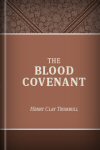
A legendary series of lectures delivered to the Episcopal Divinity School in Philadelphia, The Blood Covenant soon became the primary resource for studying old-world covenants. This classic text opened the door for a broader study of the blood-covenant basis in which God deals with man. The Blood Covenant is a foundational volume, exploring the use of blood covenants in cultures throughout the world and yet bringing it back to a sound theology with the God of the Old and New Testaments.
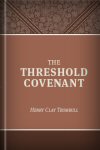
A sequel to his well-received work on ancient blood covenants, The Threshold Covenant seeks to bring the investigation of primitive ritual even further back in time. “[The Blood Covenant] began as it were with Cain and Abel,” he writes in the preface. “While this begins with Adam and Eve.” This work is a study of temples and altars, of rituals and rites, of the foundations of Christian Passover, and even of the misdirected offshoots of these rituals.
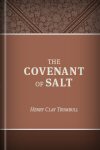
Starting his exploration of ancient rituals afresh, Trumbull takes on the task of developing a similar work to his famous The Blood Covenant by exploring the concept of salt as a life-bringing substance. Here, Trumbull charts previously undiscovered territory, recognizing salt as a fundamental component in bread, a requirement of blood sacrifices, and a mystical application in exorcisms and divination.
Included at the end of this text is an appendix with a previously published short work of Henry Clay Trumbull, titled “The Ten Commandments as a Covenant of Love.”
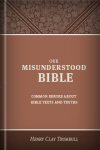
Recognizing the difficulty in Bible interpretation, Henry Clay Trumbull sets out to clarify the prejudices and perspectives readers bring to the Bible before even the first page has been turned. To that end, Trumbull identifies the cultural difficulties and lexical challenges one faces in understanding the Bible.
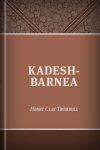
Kadesh-Barnea was a long, lost location for centuries. The site where the Israelites first sent their spies into Canaan, where Aaron and Miriam had died, was a significant feature in determining the southern border of Israel and the historical route of the Exodus.
Some 20 years before the currently accepted location for the ancient Kadesh-Barnea was mapped, Henry Clay Trumbull set out to provide his own exploratory findings, as well as support the significance behind properly locating this ancient location. In this well-documented and thoroughly-footnoted work, Trumbull describes his journeys through the Zin Desert, translates local ancient Hebrew and Arabic texts, and pinpoints where he suspected the ancient location lay forgotten.

Providing several studies into the ancient cultures of the Middle East, Trumbull develops a context for readers to understand biblical perspectives and events. Studying cultural events such as weddings, funerals, family relationships, prayers, and wealth, Trumbull digs deep into the societies of biblical times, thoroughly explaining—with examples from the Bible—the assumptions made during the writing of ancient Scripture.
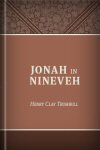
Henry Clay Trumbull submitted this essay on the argument of the historicity of the story of Jonah before the Society of Biblical Literature and Exegesis in 1891. With comprehensive footnotes and a thorough knowledge of ancient mythology and history, Trumbull brings the reader into Nineveh alongside Jonah and provides compelling evidences of the life and impact of the prophet Jonah.
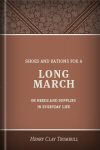
As a regimental chaplain during the American Civil War, Henry Clay Trumbull gave powerful sermons to the troops of the Tenth Connecticut Regiment, convicting them of the high stakes at which the war over slavery was fought. This is where Trumbull learned the harsh lessons of life and death and further developed his perspective on the fear of death and the victory of Christ in his sermons.

Jesus elevated the importance of the perspective of the child in his famous Sermon on the Mount. On some level, childlikeness is an indication of Christlikeness, and Christ set a standard for the treatment and respect of children. This collection of unique accounts on the adult perspectives on children reveal how cultures throughout the world treat their children and how far we have left to go before Christ’s respect for children permeates societies of the world at large.
Contains:
- “The Children of Our Immigrants” by Margaret Monaghan Gibbons
- “Baby Footprints in the Slums” by Maud Ballington Booth
- “Child Life in a Day Nursery” by Elizabeth L. Gebhard
- “Impressions of Child Life in Porto Rico” by Samuel McCune Lindsay
- “Child Life in Mexico” by Wilma Jacobs Brown
- “Work and Play of a South American Boy” by Paul Bettex
- “Child Life in Brazil” by M. P. D.
- “Indian Child Life in Brazil” by M. P. D.
- “Child Life in Japan” by J. C. Hepburn
- “New Year’s Day with Chinese Boys and Girls” by Frederic Poole
- “Child Life in the Lao” by E. B. McGilvary
- “Child Life among the Karens” by Calista V. Luther
- “Child Life in Syria” by Mrs. James S. Dennis
- “The Children of Our Lord’s Own Land” by Cunningham Geikie
- “Child Life among the Mohammedans of Persia” by Elizabeth A. Larabee
- “Boy Life in Egypt” by Mary A. Dana
- “Child Life in Northern Africa” by Ella A. Baldwin
- “Child Life among the Bobangis of the Congo” by Rose Anna Hartsock
- “Child Life in Madagascar” by J. Sharman
- “Boys and Girls in Southeast Africa” by M. N. R. Stormont
- “Child Life in Telugu Land” by Annie H. Downie
- “Child Life in Alaska” by Mary C. De Vore
- “Child Life in Innuitland” by Frederick Schwatka
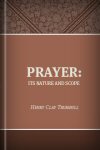
In this volume, Trumbull offers his honest and personal reflections on the practicality of prayer. Covering over a dozen different aspects and approaches to prayer, Trumbull attempts to explain and defend the nature of prayer to doubters through this exploration and exposition and to reinforce a theology of prayer that should be shared by Christians of all walks of life.
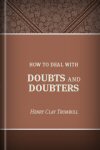
Trumbull considers the nature of doubt and disbelief, its causes and effects, its uses and its dangers. He addresses specific doubts with his own experiences and leads the reader into a place of security and confidence in the state of being a Christian and in the blessed assurance of Christ as Savior.
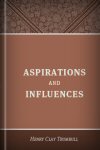
In this very intimate look at Trumbull’s personal thoughts on life, Trumbull shares his musings and beliefs on the things that make us who we are and what we desire. He explores the experiences and influences that determined his hopes and dreams, and the effect of his hopes and dreams upon his character.
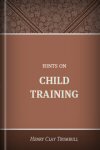
“I had lots of theories before I had any children; but now I do, with fear and trembling, in every case just that which seems to be the better thing for the hour, whether it agrees with any of my old theories or not. . . . Every suggestion in these Hints is an outcome of experiment and observation in my life as a father and a grandfather, while it has been carefully considered in the light of the best lessons of practical educators on every side.”
Henry Clay Trumbull, originally writing for a friend who sought parenting advice, compiled a thorough volume on the topic of Christian parenting. Reconciling his theories with his practices and experiences, Trumbull lays out a comprehensive guide for parenting and raising children in a household of faith.
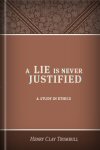
In this comprehensive volume on ethics, Trumbull explores the nature of ethics, the practice and implementation of ethics of foreign cultures, and the Bible’s teachings on ethics. He begins with the classic philosophical question, “Is a lie ever justifiable?,” and continues exploring this example throughout the volume, delving into centuries of ethical discourse, biblical examples, classical thinkers, and the fathers of the Church.

“Missiles of destruction, means of defense, and modes of warfare change from generation to generation; but emotions of the heart and influences that affect these in times of peril and of privation, of joy and of sorrow, of hope and of fear, are ever the same, while the human heart is human, and the sources of strength and of weakness are as they are.”—from the Preface
Henry Clay Trumbull writes from his experience as an army chaplain in the American Civil War on behalf of the soldiers he served alongside. Each chapter is a reflection upon his service to Christ and to country and of his counseling to the soldiers wounded—physically and spiritually—by war.
“Chapters of old-time experiences like these have, however, a value apart from the question of their timeliness. Their fitness is for days of war or of peace—our days or the days of others.”—Henry Clay Trumbull
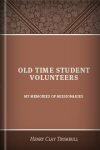
Henry Clay Trumbull collects a variety of biographies on missionaries of various eras and places, which he considers “as more fairly representative of foreign missionaries as a class, and as a whole.” In 38 chapters, he covers dozens of missionaries and the character traits required of a missionary, based on biblical principle and experience.
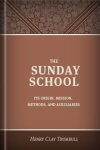
Originally a series of lectures spoken at Yale Divinity School, Henry Clay Trumbull defends the principles and pragmatism behind Sunday school, which nowadays is taken for granted as a commonplace and expected church ministry. In these lectures, Trumbull demonstrates exactly why he is known as the pioneer of Sunday school as we know it today.
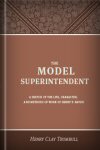
Henry Clay Trumbull writes a character biography on Henry P. Haven, whom he considered one of the highest models of Christian character and personality in a position of leadership over Sunday schools in his day. In this annotated biography, he notes exactly those character traits that lend themselves towards Haven’s success as a Sunday school superintendent, and how those traits were formed and developed in Haven’s life, from boyhood to adulthood.
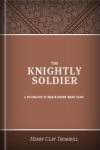
Henry Clay Trumbull, with utmost care to preserve his deepest and most beautiful friendship, composes a biography shortly after the death of his best friend, Henry Ward Camp. Coming across almost as an adventure story, it shows that Camp indeed had a life to record! From Camp’s early childhood to his service in the military in the American Civil War—including his imprisonment as a prisoner of war and subsequent escape—Trumbull records the life and close friendship of Henry Camp.
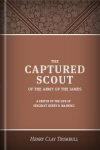
This eulogy was presented before the soldiers of the Army of the James after the passing of their comrade, Henry H. Manning, whose memory in the minds of his friends was kept in highest dignity and esteem: “One whose varied and thrilling experiences, peculiar services to the Union cause, and noble Christian character entitled him to special mention, as a noteworthy and satisfactory illustration of the bravery and worth of the enlisted men of that army.” Albeit short, this eulogy will snag onto the strings of your heart and bring you into the experience of this young soldier in the smoke of the American Civil War.
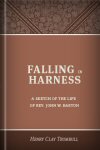
Dying at 27, the young reverend John Wait Barton left no small impact on his friends, family, community, or upon Henry Clay Trumbull. Barton—a man who suffered illness all his short life—passionately pursued the study of Christ and lived as a minister, sharing Christ with anyone and everyone who would listen. This eulogy captures the reader from the first page and reveals the heart of Christ in a young man who, from his humble beginning as an orphan, forgot not even the least of the little children whom he taught and ministered in Sunday school.
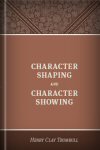
Exploring the qualities of character as used in the measurement of the quality of a man, Henry Clay Trumbull thoroughly discusses character in this classic volume. Drawing upon examples of personal character from figures in world history, Trumbull also exposits on morality, virtue, and the methods used in judging character.
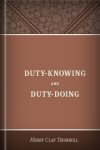
In this fundamental volume, Trumbull illustrates the strength of willpower and the benefit of holding fast to one’s duty—primarily to the duty Christians have made to Christ. What role does steadfast obligation have in a life of love and forgiveness? Trumbull demonstrates, with examples and logic, how Christian life and military life are similar and what we can learn from duty.
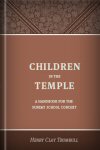
Writing only on the topic of religious community exercises for children, Trumbull composes this unique volume that, in its day, had never been written on before. Concerned with matters of children’s church, Sunday school, children’s choir, and other gatherings, Trumbull writes prolifically to provide a guide to churches nationwide for the involvement of the community in the religious upbringing of the children of the church.
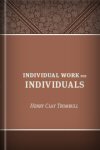
Writing on the topic of individual discipleship, Trumbull explores biblical examples of where individual training and personal evangelization has changed history. Arguing that preaching to a single soul is no less noble than to hundreds or thousands, this volume shows the merits and criticisms of evangelizing, teaching, and training on an individual level.
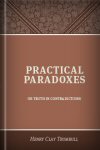
Exploring Christian teachings that seem contrary to life experience (and particularly the way of the world), this volume is Trumbull’s venture into the realm of the paradox as a pragmatic philosophy. “All its teachings are contrary to the common opinions of man.” he writes. “According to this law, giving is getting; scattering is gaining; holding is losing; having nothing is possessing all things; dying is living.”
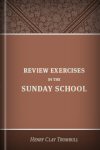
This advisory text was written for the benefit of pastors and principals for the purpose of evaluating their own Sunday school programs. Trumbull covers over every aspect of the review process, discussing its importance, its implementation, and its results.
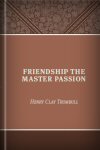
Composing a volume on friendship shortly after the death of his wife, Trumbull writes what he hopes to be the classic, quintessential work on friendship as “the master-passion of humanity.” In defense of this profound idea, he sets out biblical principles, provides examples from his own life, and explores those friendships which changed the course of human history.
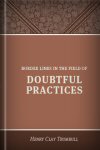
Discussing moral values and practices among Christians, Trumbull writes to the next generation about the importance of listening to the conservative advice of elders and the practical weight of their experiences. Specifically taking on issues of risky behavior, such as drinking, smoking tobacco, visiting the public theater, and dancing, Trumbull visits each by estimating them in Christian morality and the virtue of a Christ-like character.
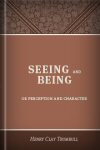
Henry Clay Trumbull explores the relationship between what we see and what we become: how does our worldview—and those things we allow ourselves to be exposed to—affect our character and our personality? How do we remove planks from our eyes, fix our gaze upon the Cross, see through one-another’s eyes, and transform the world without succumbing to the fallen ways of humanity?
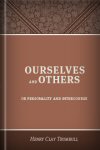
In this volume, Trumbull shares his wisdom in changing the direction of our attention from ourselves to others. Each chapter of this work explores the nature of refocusing our focus from our own wants and needs to that of ministering to others around us—especially those to whom we have very little interest to begin with. How does one adopt this perspective with sincerity? Trumbull teaches the reader how to reach a genuine love and concern for those whom Christ loved first.
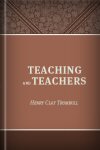
Created originally as a guide to Sunday school teachers, this updated volume explores the nature of teaching Sunday school and the best methods for implementation of curriculum and retention of children’s attention.

This collection of essays discusses the methods and rhetoric of Bible study. Covering such basic and broad topics such as inductive Bible study, Bible interpretation, and approaching the Bible with the right spirit, these authors demonstrate a deep knowledge of Scripture and how to study it.
The essays contained include:
- “What is Bible Study” by Henry Clay Trumbull
- “Right Spirit in Bible Study” by Austin Phelps
- “Inductive and Deductive Methods of Study” by Robert Ellis Thompson
- “Studying the Bible Book by Book” by F. K. Sanders
- “Scripture Explaining Scripture” by J. L. M. Curry
- “Study of the Bible as Literature” by George B. Stevens
- “Hints as to Bible Interpretation” by John A. Broadus
- “Need of Oriental Lights on the Bible” by Henry Clay Trumbull
- “Gleanings from the Bible Margins” by John H. Bernard
- “Place of Helps in Bible Study” by Henry Clay Trumbull
- “How to Use Bible Commentaries” by Charles J. Ellicott
- “Right Spirit in Old Testament Study” by Willis J. Beecher
- “How to Get a Knoweldge of the Whole New Testament” by George B. Stevens
- “Hints on the Study of the Gospels” by M. B. Riddle
- “Hints on the Study of the Epistles” by J. M. Stifler
- “The Bible as a Guide in Social Studies” by Robert Ellis Thompson
- “Unattained Ideal of Bible Study” by John H. Vincent
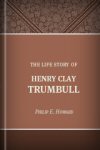
“As editor, writer, explorer, expositor, chaplain, missionary, the world has known him; now it may know him as something better than all these.”
Philip E. Howard chronicles the complete life of Henry Clay Trumbull, just as Trumbull chronicled the lives of those dearest to him. Howard thoroughly researches his mentor, giving a fair, accurate, and loving account of the life of the founder of the Sunday School Movement, the chaplain with a passion for intimacy in friendship, and the servant of Christ who lived the Gospel unto his passing.
This biography also contains individual accounts on the writing and publishing of at least 16 of the books included within this collection.
Philip E. Howard was the son-in-law of Henry Clay Trumbull, as well as his associate on the Sunday School Times.
About Henry Clay Trumbull
Henry Clay Trumbull (1830–1903) was an American chaplain in the Union Army during the American Civil War. He was a pioneer in the Sunday School Movement, and later was an editor of the Sunday School Times. He was ordained as a Congregational minister, and although his sickly health prevented him from furthering his education, he earned three honorary degrees from Yale, Lafayette, and the University of New York.